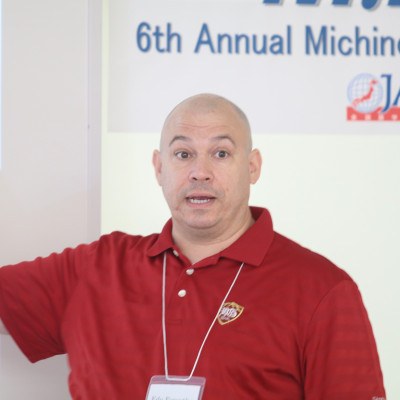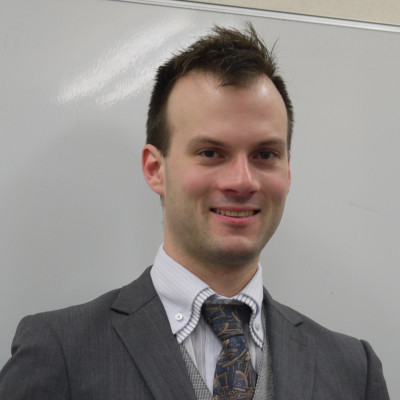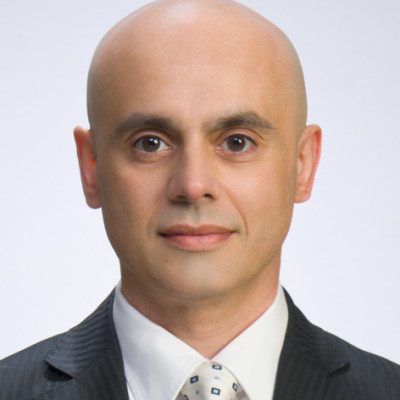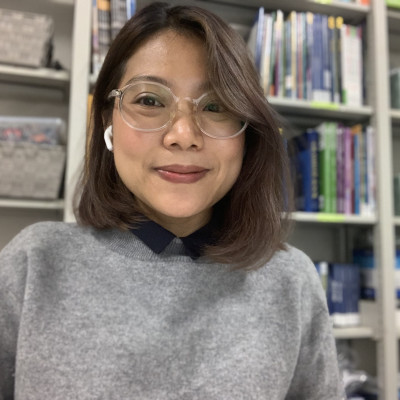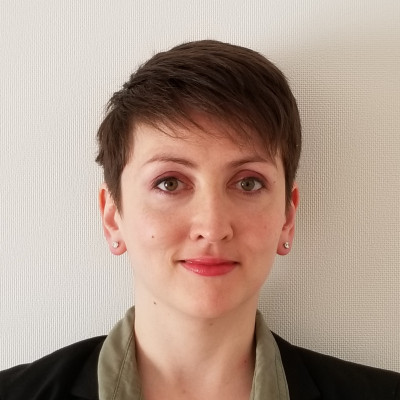Sessions / Location Name: E25
Physical Location
Location: E25
Building: Miwa Campus Building < The University of Nagano
Further Reflections on the Effects of Free Writing in an EFL Writing Class #2724
Japanese university students are often required to perform free writing activities in their English language classes in an attempt to encourage confidence in writing in English. Free writing activities are defined as “the act of writing quickly for a set time from ten to fifteen minutes, just putting down whatever is in the mind, without pausing and worrying about what words to use, and without going back to modify what has been written” (Li, 2007, p. 42). The authors have had their students do free writing activities throughout two years of English composition courses and analyzed the quantitative effects of such activities. In this presentation, the authors will explain the free writing activity tasks used, then provide quantitative data to show results in terms of the number of words written, and finally representative qualitative examples from the students’ reflection on their free writing experiences. This presentation will be an extension of the data presented at JALT2021. Attendees will come away with ideas for how to more effectively employ free writing in their university English language classes in a manner that will align with students’ ideas on free writing for self-improvement.
(Re)imagining Language Learning: Liberal Arts and TOEFL in Japanese Higher Education #2719
For 20 years Japan has recorded among the lowest TOEFL scores in Asia. In 2019, only Laos and Tajikistan had lower average iBT scores (ETS, 2020). This presentation, based upon a joint research project by professors at four major liberal arts universities, posits that one principal reason is that Japanese high school and university curricula focus on language skills and fail to coherently build basic knowledge and vocabulary in the traditional areas of the liberal arts. As the executive director of TOEFL observes, “Most items… on a TOEFL test tend to be drawn directly from university-level textbooks, from the courses that students would typically encounter in a first- or second-year liberal arts class” (S. Gopal qtd in Moody, 2020). The presentation then describes a Content-and-Language-Integrated (CLIL) curriculum that could be adopted across universities in Japan to improve students’ content knowledge and language skills. The presenters argue that this content-and-language-integrated approach will increase students’ readiness for university study as universities implement MEXT-supported EMI courses and expansion of English curricula for foreign students (Underwood and Glasgow, 2019). This in turn can impact TOEFL and IELTS scores, providing a foundation to improve Japan’s overall standing in international measures of language proficiency.
Fostering Intercultural Competence in Foreign Language Classrooms #2962
The internationalisation of universities worldwide has grown parallel to an increasing demand for interculturally competent graduates, capable of working effectively across cultures and of successfully addressing local and global challenges. Previous studies in the fields of intercultural competence in higher education have focused mainly on the impact of study abroad programmes. Yet, as we face a global pandemic and restricted mobility, the need to research the development of affective, cognitive, and behavioural intercultural dimensions on domestic campuses has become apparent. Based on Deardorff’s Pyramid Model of Intercultural Competence (2006) and the hypothesis that intercultural attitudes are at the base of intercultural competence development, this presentation will discuss results from a one-year longitudinal study aimed at investigating the factors affecting the development of these attitudes in largely "monocultural", EFL classrooms in Japan. Particular attention will be given to the development of core intercultural competence components, namely curiosity, openness, and respect (Deardorff, 2006), as well as components identified as being essential to globally competent workers, namely cultural self-awareness and an awareness of local and global issues (Hunter, 2004). The presenter will discuss results of pre-, mid-, and post-intervention surveys, student assignments, and reflections collected from 205 university students of English as a foreign language. Findings will encourage discussion among foreign language educators on how to better foster an interculturally competent workforce through foreign language education on domestic campuses.
Reconceptualising Prejudice #2909
Prejudice. Ethnocentrism. Bias. We often present them to our students as glitches in the system, “evil intrusions” into an otherwise well-functioning cognitive process, bugs which well-meaning people should eradicate from their thinking. In fact, far from being glitches, these short-cuts in thinking are the system: human cognition would be impossible without them (Nortje, 2022). There are four limitations on human perception that make biases not only inevitable but integral features of our interaction with the world (Benson, 2016; Manoogian, 2021): lack of bandwidth in the brain to deal with the amount of sensory information available; tight restrictions on memory storage; a biological imperative to make sense of the world despite having partial experience of it; and a need to take action in real time. The presenter will suggest approaches to bias that can help students to see that: 1) they are not evil just because they harbour stereotypical thoughts; 2) such overgeneralisations are a necessary part of how we deal with the world; and 3) being aware that human thoughts and actions are always based on simplistic images of complex realities is the first step to overcoming the shortcomings of our cognitive systems. The suggestions will include activities for de-centring (stepping outside ourselves to consider multiple perspectives on an event or situation) and seeing ourselves as others do.
Interactive Classroom and Students’ Response in Junior High School #2727
This presentation will explore how to provide opportunities for interaction in English and how students have become more responsive in junior high school English classes. The Course of Study for Junior High School stated that teachers should teach English in English and develop students’ ability to communicate in English. However, teachers still focus on teaching grammar and vocabulary and not developing English interaction. Therefore, students were not used to using English for communication. In this study, the presenter provided a lot of interaction in English with junior high school students in every lesson. The lessons were conducted in comprehensible English to give students adequate input. The presenter provided interactional modification, such as asking questions about the topics or about the students themselves and also using visual aids. Giving positive feedback was also essential to encourage students. The study found that teachers’ utterances and support could elicit reactions from students and motivate them to use English in class. In addition, pair or group work helped students engage in class and made them feel less anxiety when speaking English. Providing interactive lessons and an environment where students could engage is closely related to students’ motivation toward learning and using English. Findings and implications will be discussed.
TOEIC listening/speaking prep: collaboration and real-world application #2967
Instructional practices for standardized tests like the TOEIC often rely on a teacher-centered “teach-model-practice-explain” pattern that is at odds with the Communicative Approach. Test prep materials similarly emphasize lower-order basic comprehension and recall. In this practice-oriented presentation, attendees will acquire four TOEIC listening/speaking section prep activities that focus on integrating into the “practice” stage the opportunity for students to collaborate, solve problems, and apply their learning to real-world contexts. First, the presenters will briefly cover the presentation’s motivation, context, and teaching gap (2 minutes). The presenters will then share step-by-step how-to's for the activities, which include a business consulting project for TOEIC speaking and reasoning gap for TOEIC listening (10 minutes). Participants will demo one activity (8 minutes) and finally collaborate in small groups applying the activities to their own teaching contexts (5 minutes). Attendees will walk away with effective, meaningful, motivating TOEIC prep activities that they can immediately begin using in their classes.
(Re)imagining language learning: A new approach to academic vocabulary #2726
The 95% vocabulary comprehension level for academic texts and lectures is the crucial threshold for university study. To help learners attain this level, the presenters combined the headwords from the 4 major academic vocabulary lists to date: AWL (570 words), NAWL (963 words), UWL (836 words), and EAP (874 words). The resulting Global Academic Lexicon (GAV) presents the headwords from all four lists in 23 lessons. These lesson, comprising 1,850 words, progress from most frequently appearing to the least frequent. The pedagogical premise is efficacy: to lower the “learning burden” and learn the most commonly appearing words first (Nation, 2006). These lessons are now open-source and available to university teachers and students in Japan and around the world. Using free online Quizlet cards, they (1) provide the primary meaning of headwords in simple English and in Japanese, (2) demonstrate their “use in context” in sample sentences, and (3) offer a rich variety of flashcards, writing-listening-spelling practice, and competitive games for individual or group use. Presenters will demonstrate how lessons can be accessed and used autonomously, in online instruction, or in the physical classroom to motivate students, assess their learning, and give feedback on their progress.
Incorporating Global Issues in EFL Classrooms #2913
The pandemic has magnified issues of social justice and inequalities both locally and globally. The language teacher who brings these issues into the classroom can inspire students to be change agents. Students benefit from these guided classroom experiences by becoming aware of marginalization both within and outside the classroom on issues such as sexism, racism, and the environment. Empowered students are able to then make informed decisions and problem-solve through critical awareness. Activities and materials created based on feminist and engaged pedagogies for an academic reading and writing class (CEFR B1-B2) will be presented. The strengths and weaknesses of these activities, their implementation, and responses from the students will be discussed to answer two questions: (1) How can teachers incorporate global issues in EFL classes? (2) How can teachers provide students with hands-on opportunities to make a positive impact in their community by reflecting on local issues?
Reflection as a learning target for global education #2911
This presentation will describe two types of reflective activities, written and conversational, designed to help Japanese university students of English clarify and develop their relationship to global issues, which is a valuable piece of the puzzle of global education. The outcomes of these reflective activities over 4 years show that they are largely successful in building self-awareness, despite revealing feelings of eco-anxiety, disconnection and frustration among students, which the presentation will discuss. Good reflective practice among students allows for not only greater wellbeing and depth of knowledge (Helyer, 2015; Chang, 2019), but progress towards global education’s goals of awareness, attitude, and action (Cates, 2002; Hicks 2010). Encouraging reflection, as an explicit student learning objective connected to various learning tasks, gives students the space and time to examine their values, beliefs, and changing relationships to their community, climate, and conflicts at home and abroad. A discussion of the merits and limitations of these, and other reflective practice activities in a global issues classroom is welcome.
